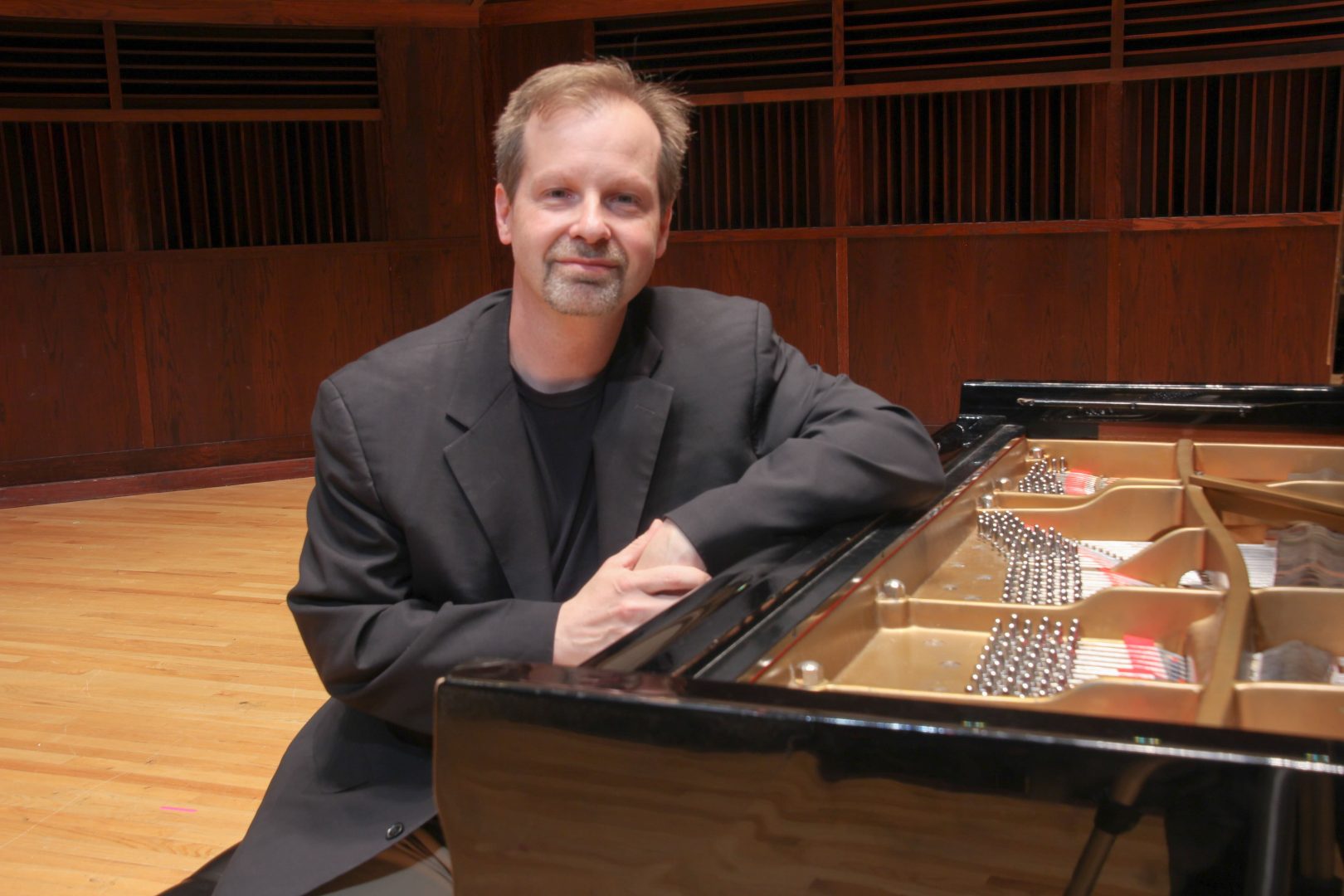On Nov. 14, the University of Indianapolis held a program in honor of the 125th anniversary of Johannes Brahms’ death. Assistant Professor of Music Gregory Martin presented a survey of Brahms’ music, accompanied by Faculty Adjunct David Bellman who played clarinet during the performance.
The music chosen for the performance was Brahms’ Op. 1 Piano Sonata No. 1 in C Major, the Rhapsody in E-flat, Op. 119, No. 4. The performance also included the “Edward” Ballade (Op. 10/1), selections from the Opus 39 waltzes, selections from Op. 118 (Six Piano Pieces) and the Clarinet Sonata No. 1 in F minor. Op. 120/1, according to UIndy 360.
Martin said he simply took music spanning from across Brahms’ life to structure the survey of music. The pieces were played in the order of Brahms producing them, according to Martin. The last piece played was a clarinet sonata played by both Martin and Bellman, according to Martin.
Johannes Brahms is often associated with the famous 3 B’s in music; Beethoven, Bach, and Brahms, according to Bellman. His contribution towards the Romanticism movement is another reason why he is considered one of the finest composers, according to Martin

“A lot of the progressive, avant-garde composers claimed that they got their ideas from Brahms,” Martin said. “There was a very famous article, ‘Brahms the Progressive’ and it was written by a guy named Arnold Schoenberg who was one of the most progressive, innovative composers of the early 20th century. He’s claiming that he got all of his ideas from Brahms, and Brahms was sort of this genius-like character.”
In his time, Brahms’ approach to composing was different from other composers who were trying to do new things in music. Martin said Brahms was considered conservative by other composers and camps of music. Brahms’ dedication to his belief in music remained the same, and he did not switch his style of composing to accommodate for movements, according to Martin.
“You have the traditional forms and approaches.” Martin said. “There were other composers in other camps who were trying to break away from that really consciously. And he was trying to stick with them.”
Brahms had a brief period where he thought he retired, but after listening to clarinet players, he decided to write clarinet sonatas during the last couple years of his life, according to Martin.
“Robert Schumann, who was his mentor, said he was born as a perfectly formed composer, when he first heard him in 1853,” Martin said.
Martin said that one belief Brahms held was that the highest level of art music was folk song. This was because Brahms’ attempted to make things that stood the test of time: folk songs in which parents could sing to their children, Martin said. To make the best version of that music in Brahms’ mind required a structure that used everything in it, wasting no notes, according to Martin.
“He stayed true to what he thought were the real principles of music and did not try to do just what was fashionable at the moment,” Martin said.






